- Opening Time : 9:30 AM - 4:30 PM
The Bachelor of Community Services program is a comprehensive and dynamic course designed to prepare students for a rewarding career in the field of social and welfare services. This course aims to equip students with the knowledge, skills, and practical experience necessary to make a positive impact on individuals and communities in need.
Throughout the program, students will delve into various aspects of community services, including social policy, mental health, child protection, disability support, and aged care. They will gain a deep understanding of the challenges faced by vulnerable populations and develop strategies to address these issues effectively.
The curriculum combines theoretical study with practical application, ensuring that students are equipped with the essential competencies required in real-world scenarios. Students will engage in hands-on learning experiences, including field placements and industry projects, allowing them to apply their skills and knowledge in real community settings.
The Bachelor of Community Services program also places a strong emphasis on personal and professional development. Students will enhance their communication, critical thinking, and problem-solving abilities, enabling them to navigate complex situations with empathy, cultural sensitivity, and ethical considerations.
Completed Australian Year 12 or equivalent. The minimum age is 18 years old. National Police Record Check and/or Police clearance from country of residence Working with Children Check English language evidence: IELTS, PTE, etc. The test result must be valid within 2 years at the time of the visa application. Some Education Institutions offer an in-house English Placement Test that you can take to meet the English entry requirements. Exemptions apply if: – you are a citizen and hold a passport from UK, USA, Canada, NZ or Republic of Ireland – you are enrolled in a principal course of study that is a registered school course, a standalone English Language Intensive Course for Overseas Students (ELICOS), a course registered to be delivered in a language other than English, or a registered post-graduate research course – you have completed at least 5 years of study in English in one or more of the following countries: Australia, UK, USA, Canada, New Zealand, South Africa, or the Republic of Ireland.
Upon completion of this course, graduates will be well-prepared to pursue diverse career opportunities in community services organisations, government agencies, non-profit organisations, and healthcare settings. They will have the necessary skills to work effectively with individuals, families, and communities, empowering them to lead fulfilling lives and promoting social change.
Enrol in the Bachelor of Community Services program today and embark on a journey towards making a positive difference in the lives of those who need it most.
COURSE DETAILS
$10 000 - $15 000
12-24 months
February, May, September
Here are the steps you need to take before receiving an invitation to apply for the visa.
You can give us a call, send an email or enquire online using the form down below.
One of our consultants will reply to any questions that you may have and assist in determining your overall study goals whilst in Australia.
Our consultants will then talk students through a range of study options that best suit your needs and develop a study path.
Once a specific education provider has been chosen, your consultant will then help students complete their school application and assist throughout the entire enrolling process.
Once your enrollment has been confirmed, our qualified migration agents will assist in applying for your student visa.
If undertaking study in Australia for a minimum of 2 years you may qualify for the Temporary Skilled Graduate Visa. This visa allows the holder 1.5 years of unlimited work rights in Australia. Many graduates use this time to build up experience in their field or find an employer that is willing to sponsor their visa.
If you have applied for the Temporary Graduate Visa you may also be eligible to apply for the Job Ready Program. The Job Ready Program is run through TRA and allows graduates in certain disciplines to have their skills assessed for skilled migration purposes. It is a way for people with no experience to have their skills assessed. Once the student receives a positive skills assessment they may be eligible to apply for permanent work visas such as State Sponsored and General Skilled Migration Visas.
Note: It is never recommended to engage in studies for the sole purpose of trying to gain a visa to Australia. Speak to us and we can find a course that matches your long-term career goals..

The Graduate Visa (Subclass 485) allows recent university graduates and certain vocational graduates the chance to remain in Australia and work after their studies have finished.

Study & Stay has assisted thousands of student’s study or migrate to Australia. We are here to support you throughout your journey and make the transition as easy and smooth as possible. Our experienced team of Education and Migration agents are ready to work with you to help you achieve your education and migration goals.
We're a free service for students. We're paid by the education institutes
Honest and accurate education and migration advice from registered Education and Migration agents
We will provide you ongoing support throughout your migration journey.
Study & Stay has partnered with 100’s of education institutes across Australia
The Bachelor of Community Services is an undergraduate degree program designed to equip students with the skills and knowledge necessary for effective work in community service roles.
This course focuses on preparing students to address and manage various social issues, support community development, and advocate for individuals and communities.
The program typically includes a combination of theoretical learning and practical fieldwork, enabling graduates to pursue careers in diverse settings such as non-profit organizations, government agencies, and community groups.
To enroll in the Bachelor of Community Services, candidates must typically meet several academic and language proficiency requirements. The standard academic requirement is the completion of Australian Year 12 education or an equivalent secondary education qualification recognized in Australia. This ensures that applicants have a foundational level of education suitable for an undergraduate degree program.
In addition to academic qualifications, proficiency in English is crucial. This is commonly assessed through standardized English language tests like the International English Language Testing System (IELTS), with specific score requirements set by the institution. Some universities and colleges might accept alternative tests such as TOEFL or PTE, depending on their admission policies.
Candidates with relevant work experience in community services or related fields may also be considered. This practical experience can sometimes compensate for the lack of formal academic qualifications, as it demonstrates practical skills and knowledge in the field.
Furthermore, some institutions may require personal statements, references, or interviews as part of the application process. These elements allow the admissions team to assess the applicant’s motivation, commitment, and suitability for a career in community services.
It’s important for prospective students to check the specific entry requirements with the educational institution where they wish to study, as these can vary. The Bachelor of Community Services is offered by various universities and colleges across Australia, and each may have its own unique set of admission criteria.
The standard duration for completing the Bachelor of Community Services is three years when pursued on a full-time basis. This timeframe is designed to provide a comprehensive understanding of community services, including theoretical knowledge and practical skills.
However, the length of the program can vary depending on several factors. For students who opt for part-time study, the course duration will naturally extend. Part-time study is a common choice for those balancing other commitments such as work or family responsibilities. In such cases, the program might take up to five or six years to complete, depending on the student’s availability and course load each semester.
Additionally, some educational institutions offer accelerated programs or summer courses that can shorten the overall time to graduation. Conversely, students who take a semester off for personal reasons or engage in exchange programs may find that their studies extend beyond the typical three years.
Prior learning and work experience can also impact the course duration. Many universities and colleges in Australia have provisions for recognizing prior learning (RPL) and relevant work experience, which can translate into course credits. This recognition can reduce the number of units or subjects a student needs to complete, thus potentially shortening the course duration.
It’s important for prospective students to consider their personal circumstances and preferences when planning their study timeline. They should also consult with the specific educational institution offering the Bachelor of Community Services to understand all the options available and how these might affect the course length.
Completing a Bachelor of Community Services opens up a wide range of career opportunities in the community services sector. Graduates are equipped to work in diverse roles, addressing various social issues and providing support to individuals and communities. Some of the key career paths include:
These roles can be found in a variety of settings, including government departments, non-profit organizations, community groups, and private sector companies involved in social welfare. The degree also provides a strong foundation for further study, such as a master’s degree in social work, public health, or community development, for those looking to specialize or advance to higher positions within the field.
The Bachelor of Community Services focuses not only on providing theoretical knowledge but also on developing practical skills through field placements or internships. This hands-on experience is invaluable, as it allows students to apply their learning in real-world settings and build a professional network, enhancing their employability upon graduation.
The sector is known for its dynamic nature, with evolving needs and challenges, offering a fulfilling career path for those committed to making a positive impact in the lives of individuals and communities. The skills and knowledge gained from a Bachelor of Community Services are highly transferable, allowing for flexibility and mobility within the field and related areas.
The Bachelor of Community Services course encompasses a comprehensive range of topics designed to prepare students for diverse roles in community service and social work. These topics provide a blend of theoretical knowledge and practical skills essential for effective work in the sector. Key areas of study typically include:
These subjects are tailored to ensure that graduates are well-prepared to address the current challenges in community services and adapt to future changes in the field. The course often includes practical components such as internships, field placements, or project work, enabling students to gain real-world experience and apply their learning in practical settings.
The curriculum is designed to not only impart specific skills and knowledge but also to foster critical thinking, problem-solving, and effective communication skills. These are crucial attributes for professionals in the community services sector, where they may deal with complex and dynamic social issues.
For a detailed breakdown of course content and specific units of study, prospective students should refer to the curriculum provided by the educational institution offering the Bachelor of Community Services.
The Bachelor of Community Services course is offered at various universities and educational institutions across Australia. These include major cities such as Sydney, Melbourne, Brisbane, Perth, and Adelaide, as well as in regional areas, providing students with a range of options in terms of location and learning environments. Each institution may have its own unique focus or specialization within the course, reflecting the diverse needs and contexts of community services in different parts of Australia.
The Bachelor of Community Services course typically incorporates practical experiences to complement the theoretical knowledge gained. These practical components are crucial for preparing students for the realities of working in the community services sector. Common practical experiences include:
These practical experiences are essential for developing a comprehensive skill set, including communication, problem-solving, and critical thinking skills, which are vital for a successful career in community services. They also enable students to apply theoretical concepts to real-life situations, enhancing their understanding and preparedness for post-graduation roles.
The cost of the Bachelor of Community Services course in Australia varies depending on the institution and its location. Typically, the tuition fees for this undergraduate degree can range from approximately $15,000 to $30,000 per year for domestic students. For international students, the fees are generally higher, often ranging from around $20,000 to $35,000 per year.
It’s important for prospective students to consider additional costs beyond tuition, such as textbooks, course materials, accommodation, living expenses, and health insurance (for international students). These additional costs can significantly impact the total financial investment required for the course.
Financial aid options, such as scholarships, bursaries, or student loans, may be available to help offset these costs. Prospective students should explore all available financial support options and thoroughly research the specific fees and costs associated with the institutions they are considering.
Yes, international students who complete the Bachelor of Community Services in Australia may be eligible to apply for a Temporary Graduate Visa (subclass 485). This visa allows international graduates to live, study, and work in Australia temporarily after they have finished their studies.
The Temporary Graduate Visa has two streams: the Graduate Work stream and the Post-Study Work stream. The eligibility for these streams depends on various factors, including the qualification obtained, the duration of the course, and the sector of study. The Bachelor of Community Services typically qualifies for the Post-Study Work stream, which allows graduates to stay in Australia for two to four years, depending on the level of qualification.
To be eligible for this visa, students must have held a valid student visa, have completed a qualification within the past six months that is relevant to an occupation on the skilled occupation list, and meet other requirements such as health and character checks.
This visa provides a valuable opportunity for graduates to gain practical work experience in Australia, further enhancing their professional development in the field of community services. International students should consult with the Department of Home Affairs or a registered migration agent for specific advice and up-to-date information regarding visa applications and requirements.
In case of questions, feel free to reach out to one of our experienced Registered Migration Agents.
Australia: xxxxxxxxx
Argentina: xxxxxxxxx
Fiji: xxxxxxxxx
Philippines: xxxxxxxxx
United Kingdom: xxxxxxxxx

info@studyandstay.com
xxxxxxxxx
xxxxxxxxx